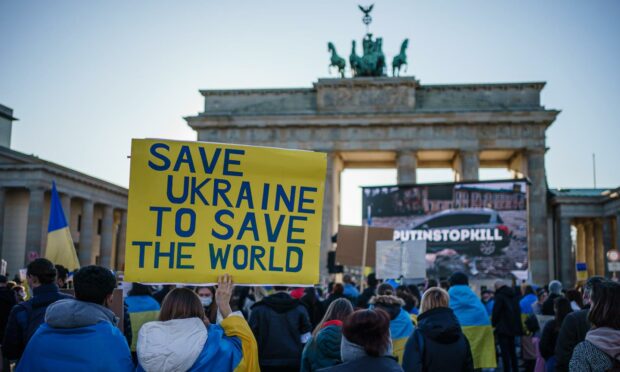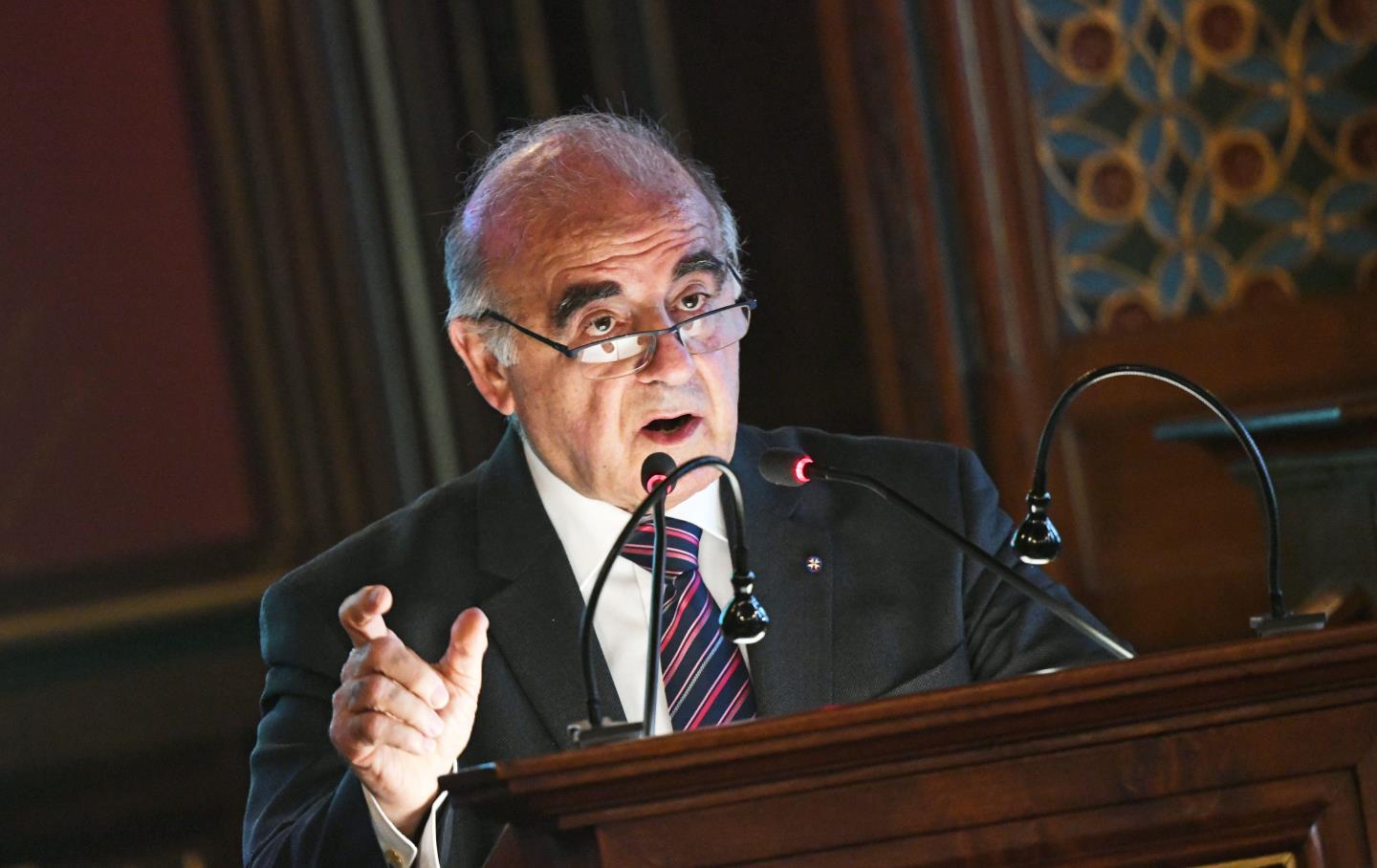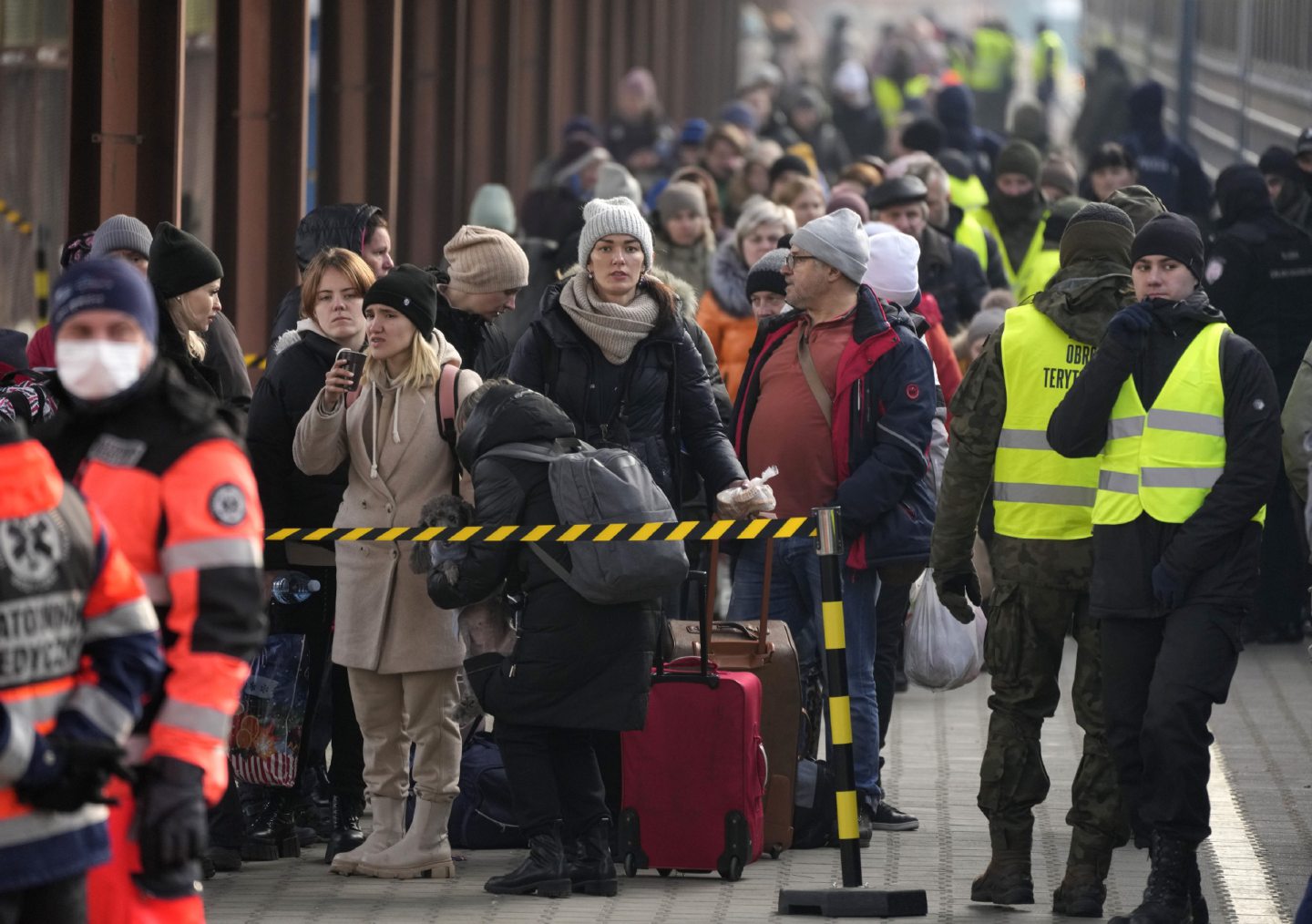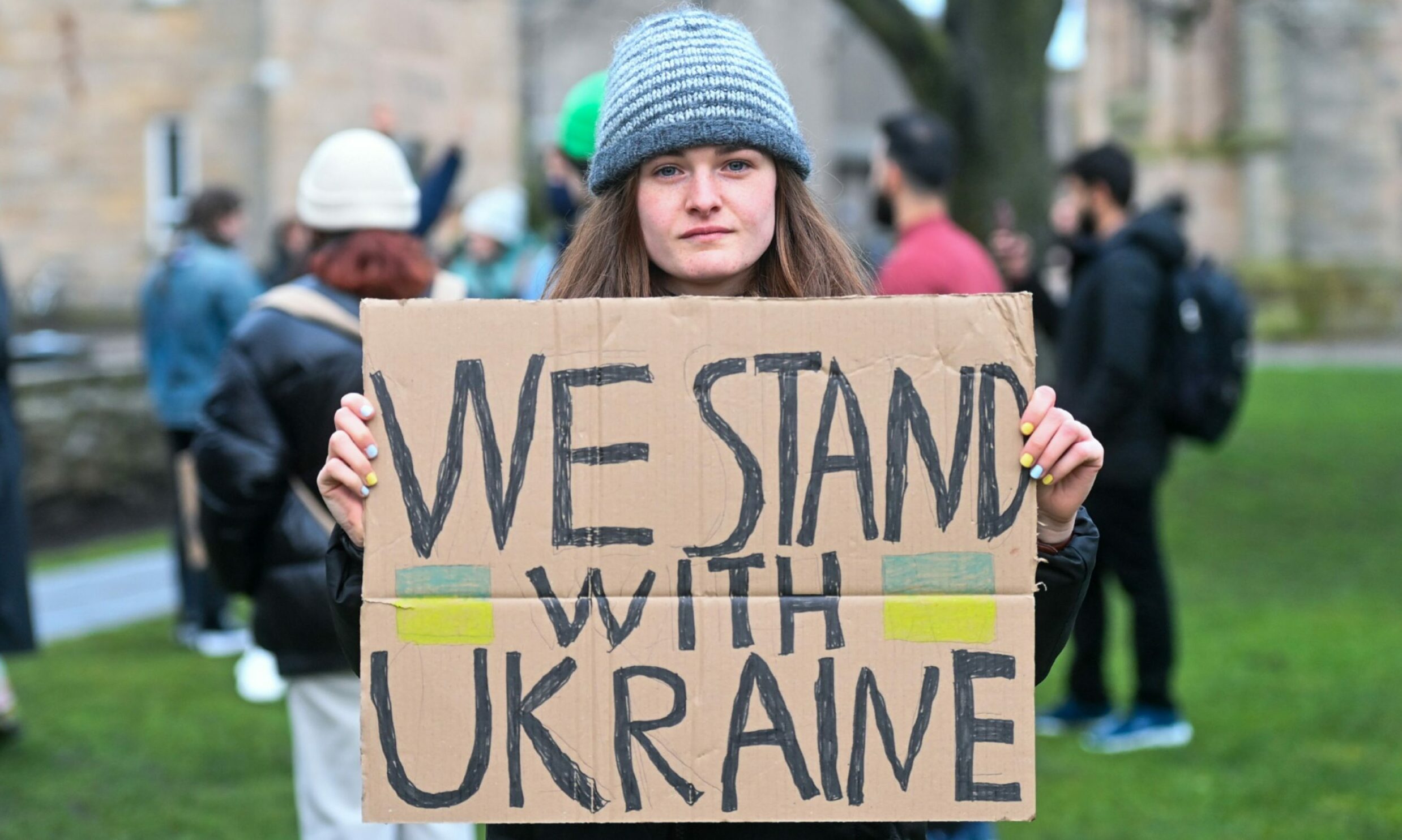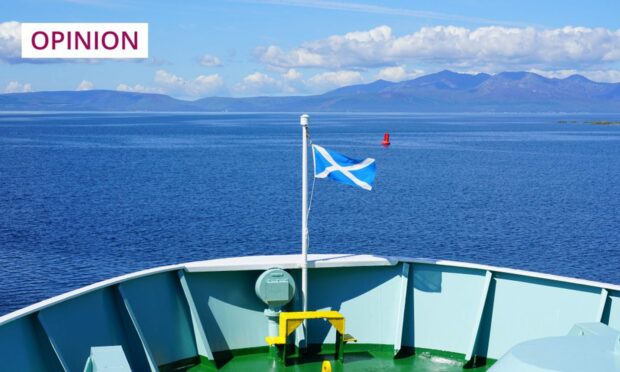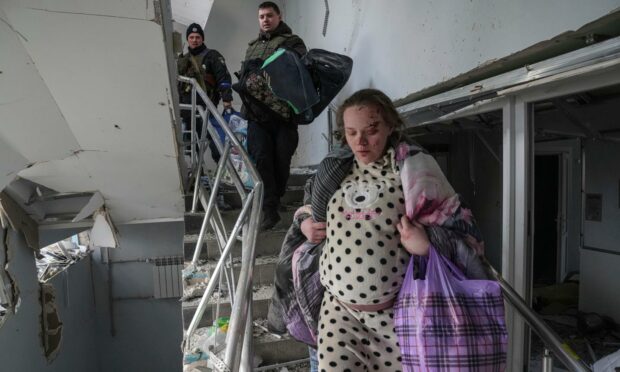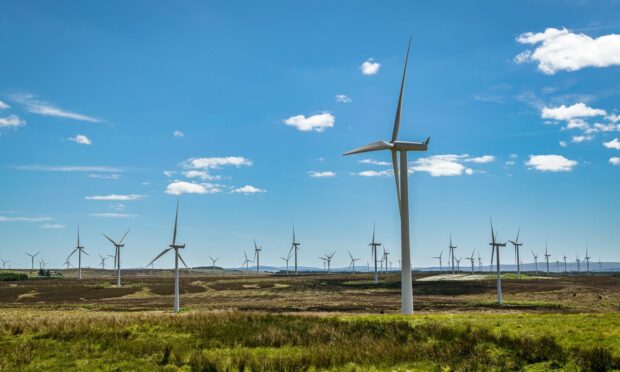What can we do?
What can we do when a deranged tyrant invades a sovereign neighbour, shells Europe’s biggest nuclear plant, destroys cities, bombs hospitals and schools, forces mothers to give birth in tube stations, kills and maims thousands of men, women and children, forcefully displaces over three million refugees and then claims to be fighting a Nazi government, despite the fact its president is Jewish?
This repetition of the horrors of 1939 that triggered the Second World War is now happening on our doorstep, in real time. The dilemma of Ukraine has united world opinion against Vladimir Putin and Russia like never before.
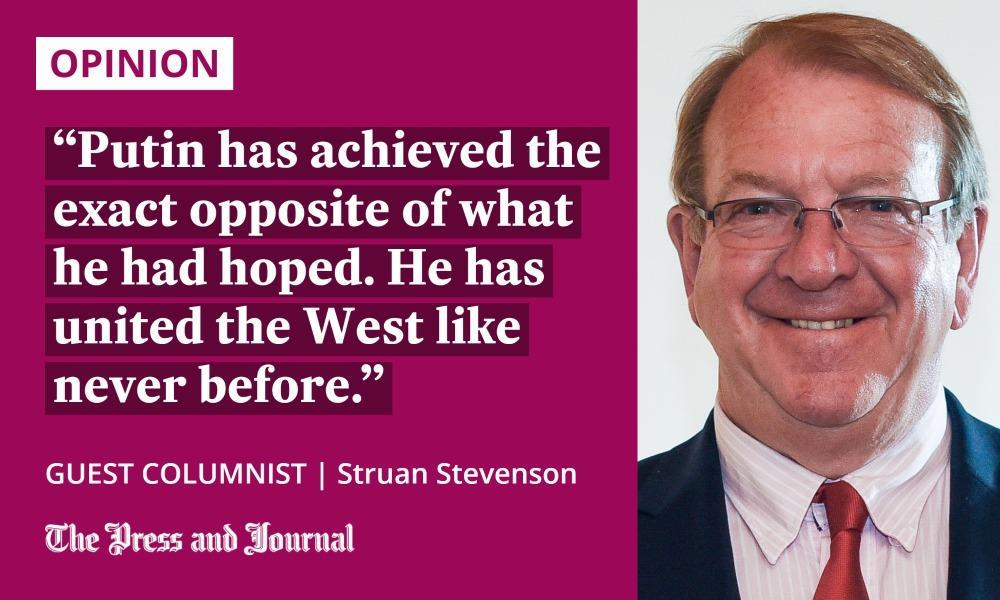
By an act of providence, this month, while 200,000 Russian troops were pillaging Ukraine, a conference was taking place in Malta, where world leaders and high-level experts sought to establish the concept of “Leadership for Just Peace”.
Hosted by the renowned peace activist, President George Vella of Malta, and the Kuwaiti poet and philanthropist, Abdulaziz Saud Al-Babtain, the World Forum for Culture of Peace saw heads of state, world leaders, parliamentarians and civil society representatives attempting to tackle the unfolding horror in Europe, and the longer-term implications for peace.
‘Peace must become our way of thinking and acting’
President Vella said that the global pandemic had taught us all to work together and demonstrated the value of unity in times of great peril. Those times were here again, he said.
In a written address to the conference, António Guterres, secretary general of the United Nations, echoed this sentiment, stating: “Our world is in turmoil. Our response must be rooted in solidarity.”
President Ilir Meta of Albania said that “peace cannot be achieved through violence” and outlined how religious accord in his country allowed many diverse faiths to live side by side in harmony. But, he continued, “peace must become our way of thinking and acting”.
The young and dynamic president of the Republic of Kosovo, Vjosa Osmani, exposed the mistakes the West had made in dealing with Putin. “Appeasement to dictators must end,” she said, clearly alluding to Western inaction following Putin’s military occupation of South Ossetia and Abkhazia in Georgia in 2008 and annexation of Crimea and Sevastopol in 2014.
Vjosa Osmani of Kosovo said: ‘Without peace, there is no progress and, without progress, there is no peace’
She warned: “Never again must this become a reality. If peace in Ukraine does not prevail, world peace may fail.”
Osmani found agreement from Stjepan Mesić, the former president of Croatia, who railed against today’s leaders, saying: “Most of them are not real leaders. None of them think in a timespan of more than four or five years, or beyond the next election.” He concluded that, “without peace, there is no progress and, without progress, there is no peace”.
10,000 deaths in a week sounds a lot like WWIII
Khaled Khalifa, the regional representative of the UN High Commissioner for Refugees (UNHCR) revealed that, in the first days following the invasion, over one million people had been displaced from their homes in Ukraine, mostly women and children fleeing for their lives. He said their numbers had added to the 84 million refugees worldwide, forcefully displaced by conflict, 86% of whom live in underdeveloped countries.
Khalifa argued that it was shameful that the UNHCR, set up after WWII, was still necessary 71 years later, and he pled with everyone to make it their goal to put the organisation out of business.
Hanno Pevkur MP, vice president of the parliament of Estonia commented it was horrifying that over 10,000 people had been killed in Ukraine during the first week of the war. He said people asked if it could escalate into World War Three, but in his opinion, 10,000 deaths in a week, together with the massive shipment of arms from Nato countries in support of Ukraine, already qualified as WWIII.
The majority of the world wants peace
I had been invited to address the world forum as an expert on conflict resolution, and as an international lecturer on human rights in the Middle East. I told the conference about my involvement in BPUR International, a worldwide campaign to introduce a UN Treaty banning the political use of religion.
I said: “Everyone knows that one of the main messages of all religions is to be kind to each other but, unfortunately, religion has very often been used as a weapon. When we look at the world today and in the last few decades and indeed over the centuries, we see that the abusive mixing of religion and politics has been the main root cause of the worst conflicts.
“There have been thousands of attempts to solve this problem. But, very often, they end up doing more harm than good by giving ammunition to the extremists.
“I believe we have now the ultimate solution to set global rules to disarm religious extremism. Unlike all previous attempts, this historic mission comes from the utmost respect for all religions, with a unique understanding of all sensitivities surrounding this minefield and how to build a global and respectful consensus.
“The proposed treaty represents a new approach to introduce clear, simple and indisputable international rules to ban all political uses of religion that undermine human equality; all religious discrimination in rights and duties; all religious exclusion; and all restrictions to freedom of religion and belief.”
As Putin gloats over the horror and havoc he has created in Ukraine, the world can look to the overwhelming majority of 141 countries who voted in the UN General Assembly emergency sitting to condemn the invasion.
Putin has achieved the exact opposite of what he had hoped. He has united the West like never before and turned his country into a pariah state.
Struan Stevenson was a member of the European Parliament from 1999 to 2014. He is an author and international lecturer on human rights and the Middle East
